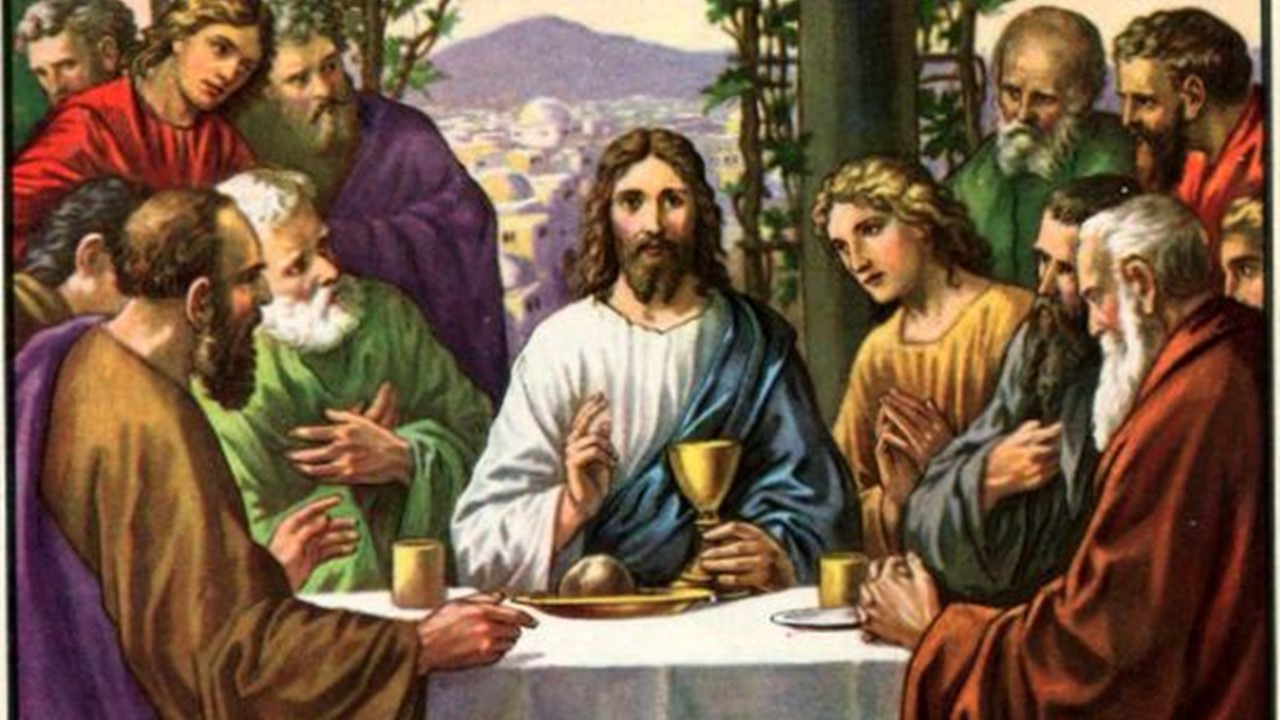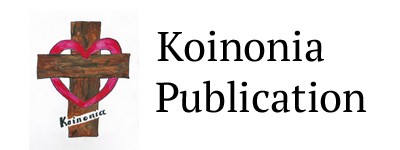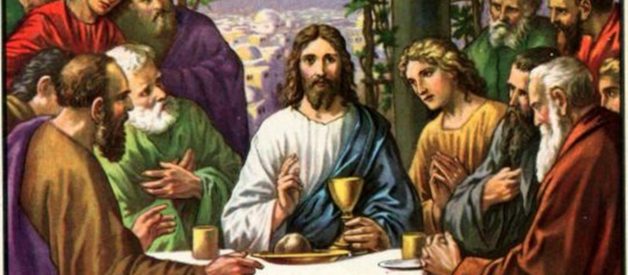In the celebration of the Passover meal in the upper room, Jesus forever links the gospel message with Old Testament scripture
 This Photo by Unknown Author is licensed under CC BY-NC
This Photo by Unknown Author is licensed under CC BY-NC
Jesus often shared meals with His disciples. They were times of fellowship and learning. Many of Jesus? more profound teachings to His disciples came around the dinner table.
That?s precisely what happened at the Thursday dinner meal on the night Jesus was betrayed. It was to be a betrayal that would lead to His death on the Cross on Good Friday and His glorious resurrection on that first Sunday.
Jesus and His disciples were having a special meal in the upper room, and Jesus would use this special meal to teach His disciples about His death and resurrection. In this teaching, he would also link His death and resurrection to a special event in the Old Testament scriptures. By doing so, He would link the entire Bible together, both the Old and New Testament.
This was no ordinary meal. It was a Jewish Seder meal, a meal that was a memorial to the event in the Old Testament called the Passover. Why was this meal so crucial to the Jews? Because it celebrated the release of the nation of Israel from the slavery of their Egyptian masters.
Setting the stage
Let?s briefly set the stage, as outlined in Exodus 12:1?17. God is going to free the nation of Israel from Egypt. But, to do that, He must use His messenger, the prophet Moses, to meet with the Egyptian pharaoh and try to persuade Pharaoh to give the Israelites their freedom.
But, you see, Pharaoh is having none of this. He needs his Israelite slaves to finish building his cities ? he needs the slave labor. So God must use a series of 10 plagues ? each one a little worse than before ? to try to convince Pharaoh. But, after each plague, Pharaoh?s heart hardens a little more, and he still won?t let His people go. Then God sends one final plague ? an angel of death ? to kill the firstborn son of every family in Egypt. Certainly, that will get Pharaoh?s attention.
Passover
To protect the nation of Israel from this final plague, Moses instructs them to paint the doors of their dwellings with the blood from a lamb. That way, when the angel of death comes, their houses will be passed over. They were also instructed to pack some unleavened bread (that is bread that has no yeast in it) for the sudden escape they were soon to make.
Again, the whole story is in Exodus, but the point here is the Jews remembered this event with a Seder supper each year during their annual remembrance of the Passover event (as was commanded in Exodus 12). Wine would represent the blood of the lamb that was shed and put on each door. The bread would represent God?s provision for the journey out of slavery into freedom for the nation of Israel by providing the Israelites the flesh (meat) of the lamb for them to eat as they prepared for their hard journey into the wilderness as they escaped from Egyptian slavery.
The meal
This was the meal that Jesus and His disciples sat down to on that Passover Thursday evening. The disciples understood the significance of the wine and the bread, but now Jesus was going to link them to His upcoming death and resurrection.
We pick up the story in Luke 22:
As they were eating, Jesus took bread, gave thanks for it, and broke it. He gave to the disciples, and said, ?Take, eat; this is my body.? He took the cup, gave thanks, and gave to them, saying, ?All of you drink it, for this is My blood of the new covenant, which is poured out for many for the remission of sins. But I tell you that I will not drink of this fruit of the vine from now on, until that day when I drink it anew with you in My Father?s kingdom.? (Luke 22: 26?29, WEB)
With these words, Jesus linked the Passover of the Old Testament forever with the New Testament covenant, His covenant (covenant being another word for a promise). During Israel?s escape from the slavery of their brutal Egyptian masters, it was the blood of the lamb that caused God?s angel of death to ?pass? the house of the Israelites, while not sparing the firstborn children of the Egyptians.
For the Israelites to collect the blood, the lamb had to be sacrificed ? it had to be killed. Then, during the Passover feast, the flesh (the meat) of the lamb would be cooked and eaten with unleavened bread in preparation for the journey out of Egyptian bondage. This could not be any lamb. The lamb had to be a male, without blemish (that is, without fault ? it could not be sick or diseased in any way; see Exodus 12:5).
So it is with Jesus and the symbols He shared with the disciples. The unleavened bread represented His body ? His sinless, perfect life ? that was broken on the cross. And wine represented His blood, the blood of an ?unblemished lamb.?
Final thoughts
As sinners separated from a holy God by our sin, we were doomed to die a spiritual death ? a death far worse than just the physical death experienced by the Egyptian firstborn children. But God loved us so much that He sent Jesus to die in our place ? to allow us to escape our slavery to a life of sin.
In the exodus from Egypt, the Israelites were saved and brought out of slavery through the sacrifice of the body and blood of a spotless lamb. So it is that we are brought out of much deeper slavery, a slavery to sin and Satan. By the body and blood of Jesus, because of which we are ?passed over?, we are saved from death and brought back into a right relationship with God that gives us eternal life.
As with the Passover, this new event, called by various names throughout the generations ? the Lord?s Supper, the Eucharist, Holy Communion ? was to be used as a remembrance of what Jesus had done for us on the cross. But unlike the Festival of Passover, which was celebrated only once a year, communion is an event Christians are encouraged to celebrate often, as a remembrance of what Christ has done for us. While the New Testament does not mandate how many times we are to celebrate communion, we are told:
For as often as you eat this bread and drink this cup, you proclaim the Lord?s death until He comes. (1 Corinthians 11:26, WEB).

This story is published in Koinonia ? stories by Christians to encourage, entertain, and empower you in your faith, food, fitness, family, and fun.
We are a Smedian Publication. Find out about us and how to write for us.


